Bryan Weichelt, PhD, Director of the Return to Work project was recently published in the Journal of Medical Internet Research with this innovative program.
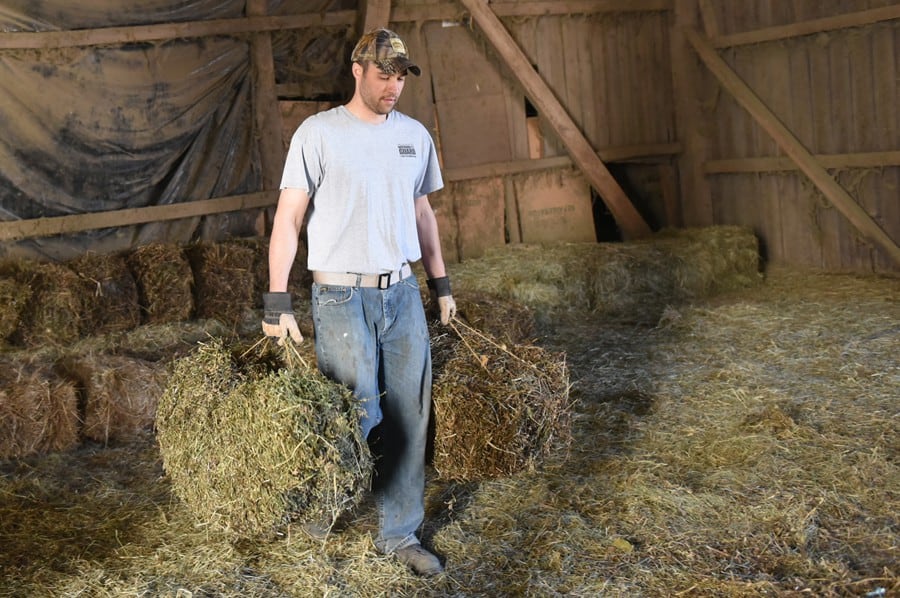
Project Description
Dates: 2012 – 2016
Serious, restrictive, non-fatal injuries are commonplace in large animal agriculture, including in pork and dairy production. The cost of workplace injuries in dairy production is unknown but given the frequency of injury among workers in dairy, it is certainly a burden to the industry.
Clinicians in the primary care setting increasingly are the front line for treating occupational injuries and responsible for managing workers’ return to work. Primary care clinicians are often poorly equipped to manage and treat occupational injuries and illness and have few resources to facilitate workers’ return to work.
The Return to Work project will create a mechanism to bring the realities of work on the farm to the clinic in a way that the clinician can review, understand and develop a transitional plan that will safely and promptly return the worker to the workplace.
SPECIFIC AIMS:
- Develop a collection of tasks in dairy and pork.
- Convert and integrate Physical and Occupational Therapists’ unstructured narrative data into structured data.
- Design and pilot an interactive software application, used as a clinicians’ guide in return to work planning for injured dairy and pork workers.
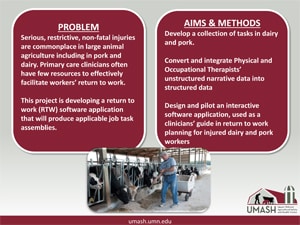 The Return to Work project was designed to develop a computer application that would assist treating physicians in safely returning injured agricultural workers to their place of employment when they are not yet fully recovered but still capable of doing some productive tasks. The project team continues make great strides in the development of this application.
The Return to Work project was designed to develop a computer application that would assist treating physicians in safely returning injured agricultural workers to their place of employment when they are not yet fully recovered but still capable of doing some productive tasks. The project team continues make great strides in the development of this application.
Farm task data collection is continuing through the end of Year 4. We have now visited 32 farms across Wisconsin and Minnesota. We have moved all data from the physical and occupational therapists’ notes to Microsoft word format, then into a RedCap system. This system will house all farm task data that has been collected by therapists. We have loaded approximately 90% of the task data into a structured format, via RedCap. Select pieces of that data, critical to the Return-to-Work algorithm, are currently being loaded into the application database.
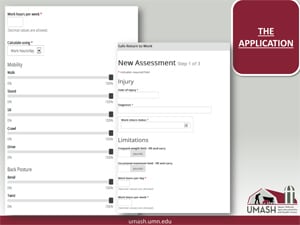 Thousands of farm task photos have also been captured over the past grant year. These photos will be loaded into a SharePoint photo library and indexed for optimal search. The photos are also linked to specific tasks. Within the software application, they are used as educational tools to facilitate communication between the clinician and the patient.
Thousands of farm task photos have also been captured over the past grant year. These photos will be loaded into a SharePoint photo library and indexed for optimal search. The photos are also linked to specific tasks. Within the software application, they are used as educational tools to facilitate communication between the clinician and the patient.
Primary application development is still underway. The mobile-friendly, web application is functional and will be undergoing usability testing with clinicians, residents, and other users throughout the first quarter of year 5.
Empowering clinicians to provide injured workers in dairy and pork production with an effective and adaptive return to work program, which takes into account the limitations of the injured worker and the needs of the work place.
Publications and Presentations
- Reyes, I.A. et al. (2014). Facilitating Return to Work for Injured and Ill Animal Agriculture Workers, Journal of Agromedicine. 19(2):232. https://doi.org/10.1080/1059924X.2014.892457
- Weichelt, B., Pena, A.A., Joyce, J., & Keifer, M. (2019). Economic Evaluation and Systematic Review of Publicly Available Workers’ Compensation Practice Details and Mod Rate Calculators Applied to Upper Midwest Agriculture, Journal of Agromedicine. 25(1):38-51. https://doi.org/10.1080/1059924X.2019.1593274
- Weichelt, B., Bendixsen, C., & Keifer, M. (2019). Farm Owners and Workers as Key Informants in User-Centered Occupational Health Prototype Development: A Stakeholder-Engaged Project, Journal of Medical Internet Research. 21(1):e9711. https://doi.org/10.2196/jmir.9711
- Keifer, M.C. (2013, Sept. 25). Ag related ailments: The doctor is in. Genius Bar, North American Agricultural Safety Summit, Minneapolis, MN, United States.
- Keifer, M. (2014, Sept. 26). Facilitating the return-to-work of injured and ill farm workers: An online decoder for clinicians. Boldt Meeting, Appleton, WI, United States.
- Keifer, M. (2015, March 17). Farm health and safety. 4th Annual Wisconsin Agribusiness Dinner, Columbus, WI, United States.
- Keifer, M., Mahnke, A., Ray, W., Reyes, I.A., & Weichelt, B. (2014, May 1). Facilitating return to work for injured and ill animal agriculture workers. National Occupational Research Agenda, Minneapolis, MN, United States.
- Keifer, M., Mahnke, A., Ray, W., Reyes, I.A., & Weichelt, B. (2014, Oct. 19-22). A computer application for clinicians to facilitate the return-to-work of injured agricultural workers. 7th International SHARP Symposium, Saskatoon, SK, Canada.
- Keifer, M., Mahnke, A., Ray, W., Reyes, I.A., & Weichelt, B. (2014, Nov. 15-19). Facilitating the return-to-work of injured and ill farm workers: An online decoder for clinicians. American Public Health Association 142nd Annual Meeting and Exposition, New Orleans, LA, United States.
- Mahnke, A., Verhagen, L., Weichelt, B., Reyes, I. A., Ray, W., Halstead, S., & Keifer, M. (2015, Nov. 16). User-centered design of an application to aid in the safe return to work of injured farm workers. San Francisco, CA, United States.
- Reyes, I. (2012, Nov. 15). Facilitating return to work for injured and ill animal agriculture workers. Midwest Regional Agricultural Health and Safety Conference (MRASH), Cedar Rapids, IA, United States.
- Reyes, I. (2013, Sept. 25). Facilitating return to work for injured and ill animal agriculture workers. North American Agricultural Safety Summit, Minneapolis, MN, United States.
- Reyes, I, Guerrero-Silva, F., & Keifer, M. C. (2013, Apr. 17). Facilitating return to work for injured and ill animal agriculture workers. UMASH Annual Forum, Saint Paul, MN, United States.
- Weichelt, B., Reyes, I. A., Mahnke, A., Ray, W., Verhagen, L., Halstead, S., & Keifer, M. (2015, Nov. 16). A not so lame outlook for injured farm workers: Return to work software application development. AMIA Conference, San Francisco, CA, United States.
- Weichelt, B., Reyes, I. A., Mahnke, A., Verhagen, L., Ray, W., & Keifer, M. (2016, August). Algorithmic approach to injured workers: Designed for dairy and pork, applicable across industries. Nordic Meeting on Agricultural Occupational Health and Safety, Billund, Denmark.
- Weichelt, B., Reyes, I. A., Mahnke, A., Verhagen, L., Ray, W., & Keifer, M. (2016, August). Algorithmic approach to injured workers: Designed for dairy and pork, applicable across industries. Upper Midwest Agricultural Safety and Health Annual Forum, Minneapolis, MN, United States.
- Weichelt, B., Reyes, I. A., Mahnke, A., Verhagen, L., Ray, W., Liebman, A. K., & Keifer, M. (2016, Sept.). Algorithmic approach to injured workers: Designed for dairy and pork, applicable across industries. Epidemiology in Occupational Health Conference, Barcelona, Spain.
- Weichelt, B., Reyes, I. A., Ray, W., Mahnke, A., Verhagen, L., Halstead, S., & Keifer, M. (2015, Oct. 30). Nuance to numbers: Transforming unstructured physical therapist field data to structured farm task data for an injured/ill return to work software application. UMASH Annual Forum, Saint Paul, MN, United States.
- Weichelt, B., Reyes, I. A., Ray, W., Mahnke, A., Verhagen, L., Halstead, S., & Keifer, M. (2015, Nov. 3). Nuance to numbers: Transforming unstructured physical therapist field data to structured farm task data for an injured/ill return to work software application. Chicago, IL, United States.
Project News
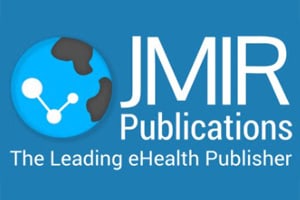
Return to Work Project Featured in the Journal of Medical Internet Research

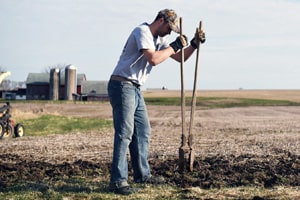
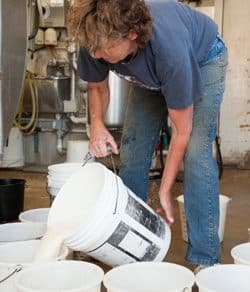
SPOTLIGHT: A Better Way to Return To Work
When farm workers are forced to take time off due to sickness or injuries, the current return-to-work process has often been a hardship for both the individual
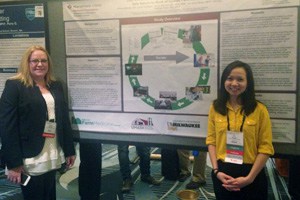
Andrea Mahnke Presents Return to Work Poster at American Medical Informatics Association (AMIA) 2015
Andrea Mahnke presented a poster at the American Medical Informatics Association (AMIA) annual symposium in San Francisco in November 2015. The title

Bryan Weichelt Presents Poster at APHA 2015
Bryan Weichelt presented a poster at the American Public Health Association (APHA) annual meeting in Chicago in November 2015. The title of the poster
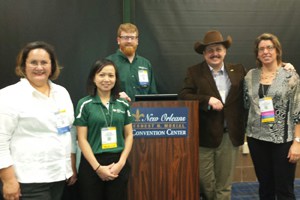
UMASH at 142nd Annual Meeting of APHA
UMASH was represented well at APHA in New Orleans, Louisiana, November 17-19. Healthography was the theme for this 142nd Annual Meeting of the American
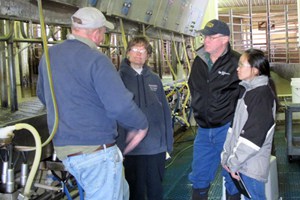
National Farm Medicine Center Conducts Worksite Visit
The National Farm Medicine Center conducted a worksite visit to a Wisconsin farm as part of the Return to Work project. Investigators are developing a
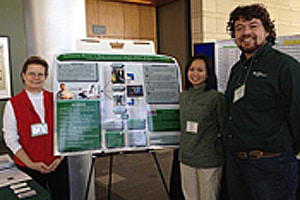
UMASH Presents at the Midwest Regional Agricultural Safety and Health (MRASH) Conference
In November 2012, UMASH staff and faculty attended the Midwest Regional Agricultural Safety and Health (MRASH) Conference in Cedar Rapids, Iowa. Center









